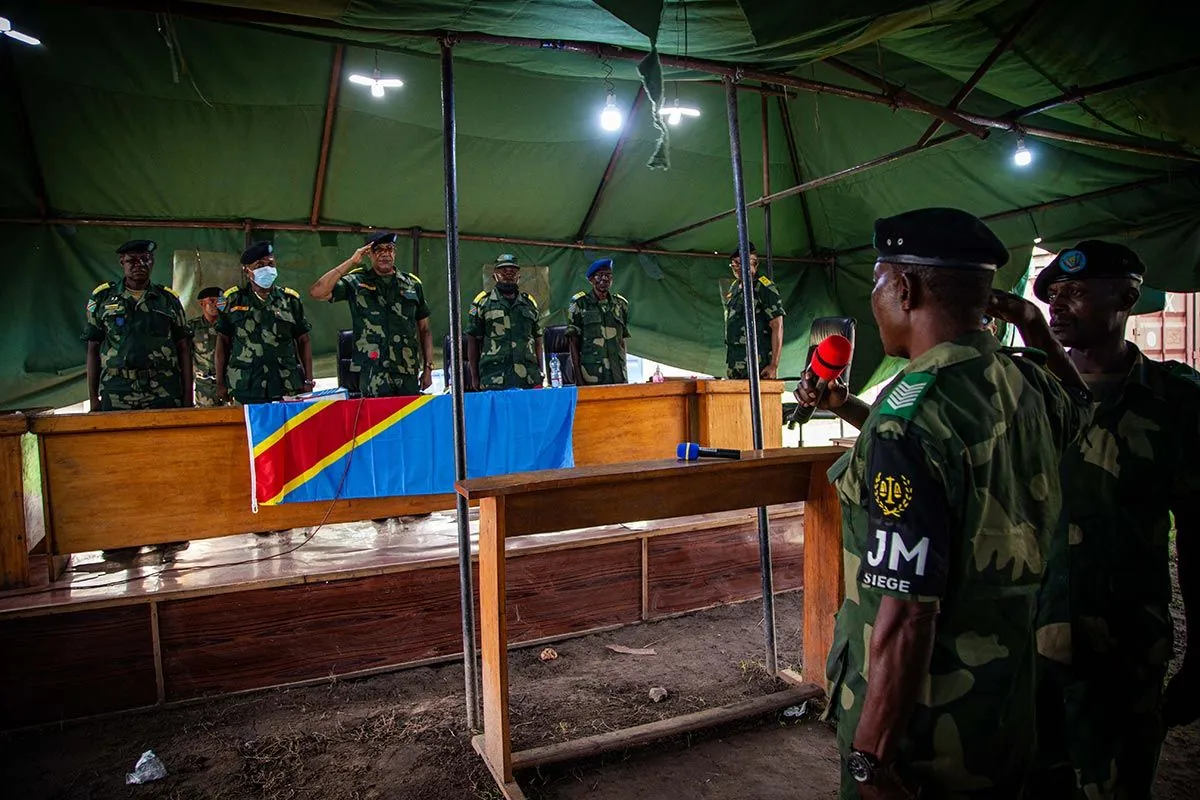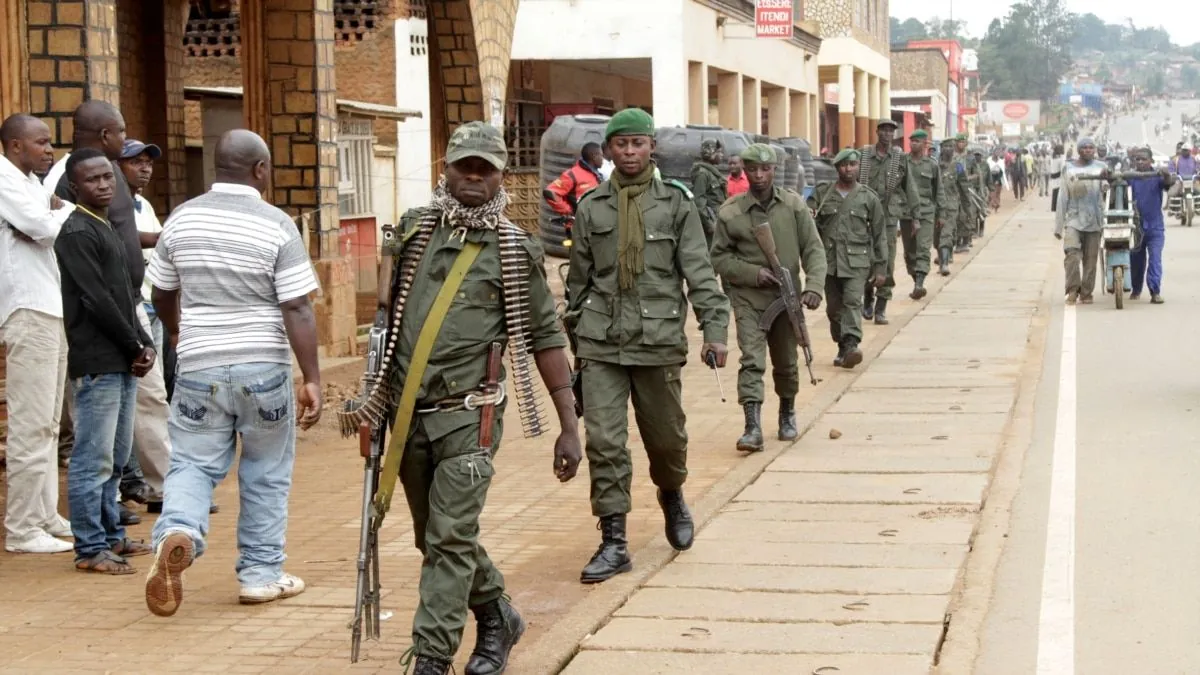Congo Court Sentences Three Americans to Death for Alleged Coup
Three Americans face death sentences in Congo for alleged coup involvement. Lawyer appeals verdict, citing illegal reinstatement of death penalty. Case highlights Congo's political instability.

In a recent development that has drawn international attention, a military court in the Democratic Republic of Congo has sentenced three American citizens to death, along with 34 others, for their alleged participation in a coup attempt. The verdict, delivered approximately one week ago, has sparked controversy and raised questions about Congo's legal system and political stability.
Benjamin Reuben Zalman-Polun, 36, Tyler Thompson Jr., 21, and Marcel Malanga, 21, are the three Americans facing capital punishment. Their lawyer, Richard Bondo, has filed an appeal against the verdict, arguing that the reinstatement of the death penalty in Congo earlier this year is illegal under international law.
Congo, the second-largest country in Africa, has a complex history of political unrest and violence since gaining independence in 1960. The nation's vast natural resources, including diamonds, gold, and coltan, have often been a source of conflict rather than prosperity. Despite its mineral wealth, Congo has one of the lowest GDP per capita globally, highlighting the challenges of governance and resource management.

The alleged coup attempt occurred in May 2024, targeting the presidential palace and an ally of President Felix Tshisekedi. The operation, led by opposition figure Christian Malanga, resulted in six fatalities. Malanga himself was killed while resisting arrest after live-streaming the attack on social media.
Among the convicted Americans is Marcel Malanga, the son of the coup's alleged mastermind. In his testimony, Marcel claimed he was coerced into participating by his father, who had threatened to kill him and his friend if they didn't comply. His mother, Brittney Sawyer, maintains her son's innocence and has been fundraising to support him during his incarceration at Ndolo military prison in Kinshasa.
The case has brought attention to Congo's legal system, which is based on Belgian civil law and customary law. Military courts in Congo have jurisdiction over civilians in certain cases, a practice that has been criticized by human rights organizations. The country's recent reinstatement of the death penalty, after a two-decade moratorium, has also raised concerns among international observers.
Congo's membership in the International Criminal Court, established by the Treaty of Rome in 2002, further complicates the legal landscape. The country's decision to reinstate capital punishment may conflict with its international obligations, providing a potential avenue for the defense to challenge the verdict.
This case underscores the ongoing challenges Congo faces in maintaining political stability and upholding the rule of law. As one of the nations involved in the Great African War and having experienced multiple coups and attempted coups, Congo continues to grapple with the legacy of its turbulent past while striving for a more stable future.
"Dad had threatened to kill us if we did not follow his orders."
As the appeal process unfolds, the international community will be closely watching the developments in this case, which has implications not only for the individuals involved but also for Congo's standing in the global arena.


































